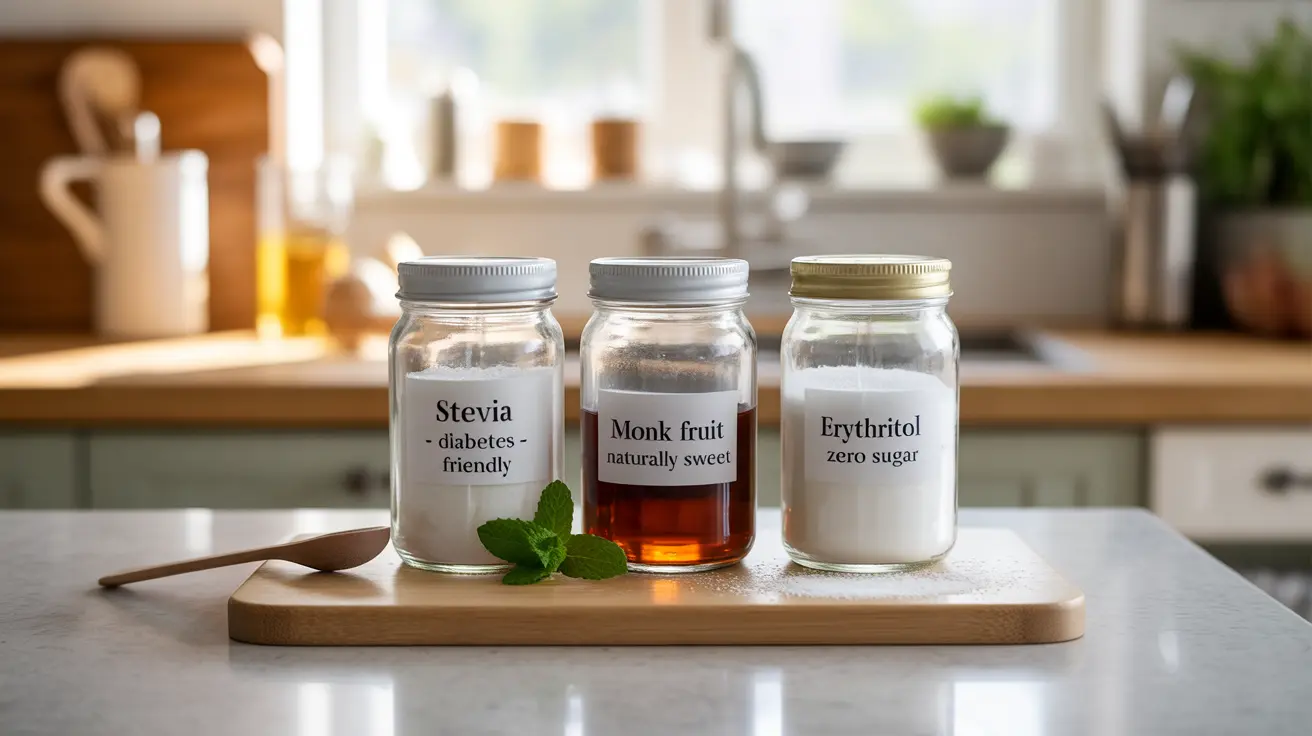For people living with diabetes, finding the right sweetener is crucial for maintaining healthy blood sugar levels while still enjoying sweet flavors. With numerous options available, understanding which sweeteners are safe and beneficial can help make informed choices for better diabetes management.
In this comprehensive guide, we'll explore the best sweetener options for diabetics, with a special focus on natural alternatives that can help satisfy sweet cravings without compromising blood sugar control.
Natural Sugar Alternatives for Diabetics
Several natural sweeteners have emerged as excellent options for people with diabetes. These alternatives provide sweetness without significantly impacting blood glucose levels, making them suitable for a diabetes-friendly diet.
Stevia: A Natural Zero-Calorie Option
Stevia stands out as one of the most popular natural sweeteners for diabetics. Derived from the Stevia rebaudiana plant, this zero-calorie sweetener has been shown to have minimal impact on blood sugar levels. Research suggests it may even have beneficial effects on glucose metabolism.
Monk Fruit: The Rising Star
Monk fruit sweetener is another excellent choice for diabetics. This natural option provides intense sweetness without calories or carbohydrates, making it an ideal sugar substitute for blood sugar management.
Sugar Alcohols: Understanding Erythritol
Erythritol is a sugar alcohol that provides sweetness with minimal calories and negligible effects on blood glucose. It's well-tolerated compared to other sugar alcohols and can be an effective part of a diabetic-friendly diet.
Choosing the Right Sweetener Products
When selecting sweeteners for diabetes management, consider these important factors:
- Look for pure forms without added sugars or fillers
- Check for NSF or USP certification
- Read ingredient labels carefully
- Consider the sweetener's heat stability for cooking
- Watch for serving size recommendations
Benefits and Considerations
Natural sweeteners offer several advantages for people with diabetes:
- Zero or minimal impact on blood sugar
- Fewer calories compared to sugar
- Natural origin
- Versatility in cooking and baking
- Potential additional health benefits
Frequently Asked Questions
Is stevia really safe for people with diabetes, and does it raise blood sugar levels?
Yes, stevia is generally safe for people with diabetes. Multiple studies have shown that it does not raise blood sugar levels and may actually help improve glucose tolerance. The FDA has approved high-purity stevia extracts as safe for consumption.
What are the best sugar substitutes for diabetics, and how does stevia compare to other sweeteners like monk fruit or erythritol?
Stevia, monk fruit, and erythritol are all excellent choices for diabetics. Stevia and monk fruit are natural, zero-calorie options with potential additional health benefits. Erythritol has slightly fewer calories and may cause less digestive discomfort compared to other sugar alcohols. Each has different taste profiles and sweetness levels, so personal preference plays a role in choosing the best option.
Can stevia actually help control blood sugar or improve insulin sensitivity in people with type 2 diabetes?
Some research suggests that stevia may help improve insulin sensitivity and glucose tolerance. While more studies are needed, preliminary evidence indicates it could have beneficial effects on blood sugar control when used as part of a comprehensive diabetes management plan.
What should I look for when buying stevia products to make sure they are suitable for diabetes management?
Look for pure stevia products without added sugars or artificial ingredients. Check the ingredient list for fillers or maltodextrin, which can affect blood sugar. Choose products labeled as "pure stevia extract" or "stevia leaf extract" and verify they're certified by reputable organizations.
Are there any side effects or risks of using stevia as a sweetener for people with diabetes?
While stevia is generally safe, some people may experience mild side effects like bloating or nausea when consuming large amounts. It's important to start with small amounts and monitor your body's response. People with allergies to plants in the chrysanthemum family should exercise caution.




